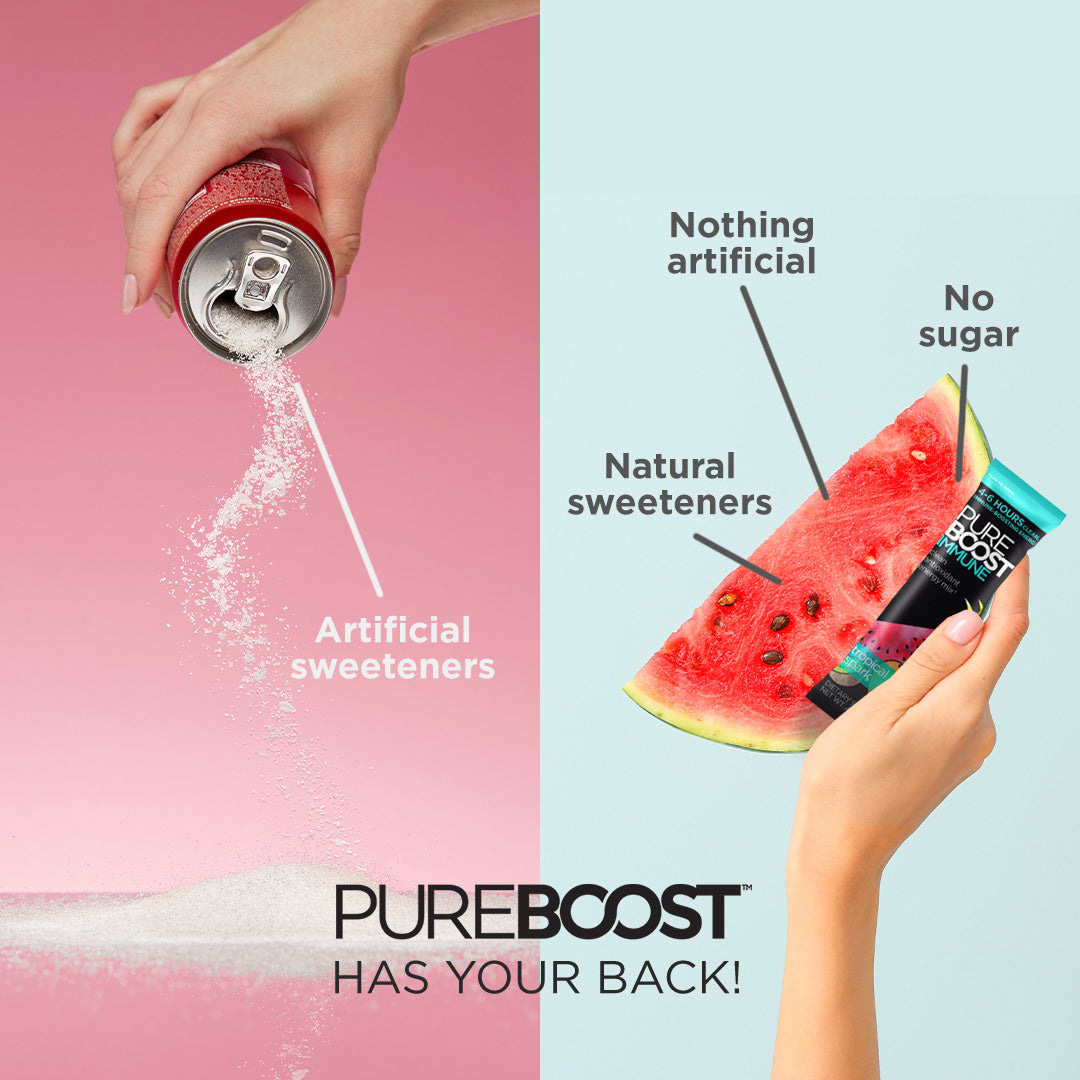
Safer Sweetening: Exploring Aspartame Risks and Natural Alternatives with Pureboost
Share

When it comes to maintaining a healthy diet, understanding what goes into your food and beverages is essential. One ingredient that has garnered attention over the years (and quite a bit recently) is aspartame, an artificial sweetener found in a variety of products from diet sodas to sugar-free candies. Though popular, there are potential risks associated with aspartame that you should be aware of. Let’s dive into what aspartame is and why we’ve chosen to steer clear of artificial sweeteners altogether at Pureboost– opting for natural alternatives instead.
What is Aspartame?
Aspartame is an artificial sweetener that burst onto the scene in the 1980s as a low-calorie superhero that could replace sugar in food and drinks. It came in and replaced over a billion (!) pounds of sugar during that decade alone. Crafted in a lab, it's created by combining amino acids and a molecule called methanol. These days, more than 5,000 products sold in the US contain aspartame, including some well-known favorites like Diet Coke and Trident sugar-free gum.
A Confusing Landscape: WHO's Assessment
Recently, the World Health Organization's (WHO) International Agency for Research on Cancer (IARC) labeled aspartame as "possibly carcinogenic” which is a fancy way of saying it may have the potential to cause cancer, but they’re not completely sure. It basically means there's some evidence suggesting a connection, but more studies are needed to confirm if it's a definite risk or not. It’s also worth noting that different regulatory bodies have different viewpoints on this, which makes it challenging for the rest of us to determine its safety. In our opinion though, possibly cancerous? Count us out.

Natural Sweeteners: A Better Alternative
Given the potential health risks associated with consuming aspartame and other artificial sweeteners, it's no wonder that many people are turning to natural sweeteners as a healthier alternative. Two of the most popular natural sweeteners, that we also use to sweeten Pureboost, are stevia and erythritol.
Stevia is a plant-based sweetener that is derived from the leaves of the Stevia rebaudiana plant. It has been used for centuries in South America as a natural sweetener and is now widely available in the United States and other countries. Stevia is much sweeter than sugar but has zero calories and does not raise blood sugar levels.
Erythritol is a sugar alcohol that is naturally found in certain fruits and fermented foods. It has a sweet taste but contains only about 6% of the calories of sugar and does not raise blood sugar levels either. Erythritol is often used in low-carb and keto-friendly recipes as a sugar substitute.
Conclusion
Aspartame is found in a wide range of products in the US, from diet sodas to sugar-free snacks. Because of the possible health risks associated with this artificial sweetener, it's essential to read labels and be aware of what you're consuming. Opt for products that use natural sweeteners (like we do!) whenever possible. Empower yourself with the knowledge of potential risks, and take charge of your choices. At Pureboost, we're all about your wellness journey, and we're here to help you make those delicious decisions that keep you feeling your best. Your health matters, and choosing wisely is your secret ingredient for a vibrant life.
Sources: https://www.vox.com/health/23795389/aspartame-cancer-who-diet-soda-cereal-artificial-sweeteners
And Chat.GPT :)